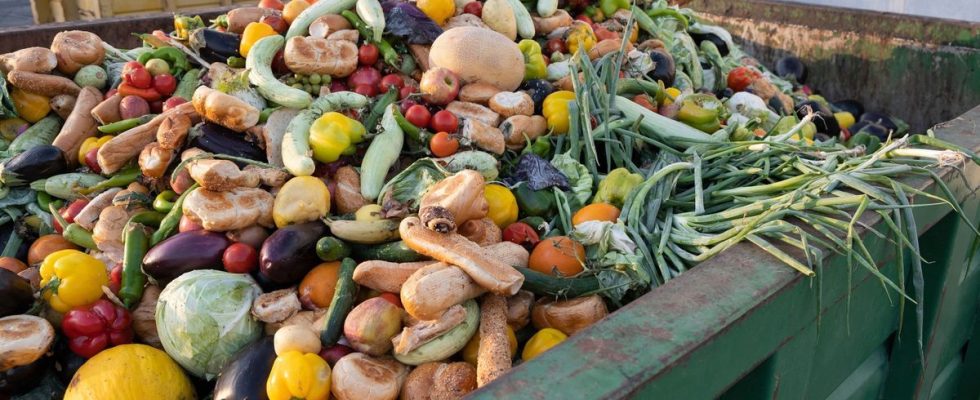Published on
Updated
Reading 3 min.
Since Monday, food waste must no longer be thrown in the trash, but this European obligation will remain very theoretical for many months for a majority of French people due to the lack of a local solution to separately collect their bio-waste.
“Less than one in three French people will actually have access to a source sorting solution in their community“, regrets the NGO Zero Waste Europe.
In fact, the Ministry of Ecological Transition has not hidden the fact that only 27 million French people, or 40% of the population, would have a solution in 2024: door-to-door collection, a voluntary drop-off point close to at home, or the provision of a composting bin on a voluntary basis.
“This obligation has been known since 2015!“, recalls Zero Waste Europe, denouncing “an unacceptable delay” which according to it “reflects a lack of political will on the part of local authorities and the State”.
Three metropolises
In Paris, the city has experimented with collection in buildings as in Milan where it works well, but is disappointed by the low use. Instead, it will install around 500 new bio-waste bins in the streets by the end of 2024, where Parisians will have to bring their peelings and food scraps, hoping that they will not throw anything else there.
Nothing is changing immediately either for the 1.9 million inhabitants of the second French metropolis, Aix-Marseille. Outdoor collection points already exist as experiments, and others will be gradually installed in 2024.
The metropolis of Lyon began the process in 2021. According to the agglomeration of 1.4 million inhabitants, composting terminals have been installed every 150 meters, or 1,300 in total for the moment.
Small towns have been anticipating this for a long time.
In the urban community of Greater Besançon there are individual composters in homes, shared bins for condominiums and composting chalets planned for entire neighborhoods, with access reserved for local residents with a code. In the city center, collection of bio-waste buckets by cargo bike, tested since 2022, must be extended to 15,000 local residents in 2024.
As a result, residents of the urban area will only have to take out the residual waste bins (gray bin) once every 15 days.
No fine
The government has especially endeavored not to go against public opinion perceived as reticent, insisting that there would be no fine in the event of non-sorting, nor any obligation to have a peeling bucket enthroned in the middle of his living room.
Late and non-binding, the terms of application of the law were only published at the beginning of December.
A simple notice, devoid of the scope of a decree, which “does not provide for sanctions or result targets“, deciphers the association of elected representatives Intercommunalités de France.
The text does not even require communities to launch a preliminary study before December 31, but only to prove that they have decided to do so.
Lighten the trash
Our trash cans contain around 30% organic matter: peels, eggshells, coffee grounds, leftover meals, sometimes given to chickens or dogs, or composted in the garden, but most often thrown away as waste.
The issue is the same as in Brussels, Milan or Seoul where the sorting of bio-waste has become a common practice.
It is firstly a matter of lightening our bins and secondly of stopping burning organic waste containing a lot of water in incinerators, or burying it in landfills, instead of recycling it into compost for the vegetable garden or agriculture, or biogas for driving or heating.
In advance
“For us it is profitable“, dares Odile Bégorre-Maire, elected representative of Lay-Saint-Christophe (Meurthe-et-Moselle) who has almost 30 years of experience.
The intermunicipality of the Pompey basin (around 40,000 inhabitants), of which she is vice-president, inaugurated a composting platform in 1999. Door-to-door collection affects two thirds of the inhabitants.
In the heart of the city, where there is no courtyard or garden and stairwells that are too narrow, voluntary drop-off points have been placed in the street within a radius of 100 to 150 meters from homes.
Everything is not perfect and “there are still 20% of bio-waste that could still be eliminated from the bag containing residual household waste, and still 10% of places where people don’t really do it“, she told AFP.
But since January 2023, garbage collectors have only come once every 15 days for residual household waste. For bio-waste and recycling, collection takes place every week.
“People have only had a 2 or 3% increase in the garbage collection tax since 2016, when otherwise the tax would have increased by 25%“, she calculates.

